|
I get asked for my opinion on dog food A LOT. Luckily, it's a subject that really interests me. I am not a nutrition specialist or a vet and my opinions are just that, my opinions. I do however spend a lot of time with dogs as well as reading, learning and researching about their nutritional needs, so this article is a summary of my beliefs and practices. Please note - this is an enormous topic summarised into one short blogpost. I will list numerous reference websites for further reading or contact me for more information and/or questions. I hope you find it to be "food for thought".
IMO - in a nutshell - the less processed the food, the better. For dogs and for us. I want my dogs to be lean, healthy, shiny and fresh smelling with great teeth and the right amount of energy for their age, so I feed them fresh food. Perro & Zuma get raw muscle meat (80%), raw meaty bones (10-20%), organ meat (5-10%), some fruit and lightly poached vegetables (5-10%). Read more about raw feeding for puppies and dogs here and here. This option sounds daunting but it's really not. Ready mixed frozen complete meal options of chicken, turkey, rabbit, beef, lamb, kangaroo, ostrich & duck can be bought from quality pet stores such as Petfriends and Meiko. There are also companies such as Babarf who deliver customised and frozen complete meals in a bag to your door once or twice per month, it couldn't be easier. I buy as much human grade meat as possible from supermarkets when it's on sale as well as tinned tuna, sardines and mackerel (in water, not oil or brine) and I buy frozen chicken hearts, stomachs, backs, feet & necks and sardines & mussels from my local Portuguese supermarket. A couple of times per week I add hemp seed or coconut oil, seaweed powder, cottage cheese, raw eggs, bone broth and probiotics. That's it in a nutshell. For Gracie who is a grand old dame (and for Siddy who died this year aged 20), my preference is cooked food, the same ratio as above but everything very lightly poached. I personally believe it's easier for really old dogs to digest cooked food. I realise many raw feeding advocates would disagree and that's fine but my golden oldies thrive on this so I intend to continue. I also mix in a little quality tinned senior food from time to time (Terra Canis, I order online here) and for upset tummies I highly recommend having a few tins of Recovery Recipe in the cupboard. I do not feed dry kibble to my dogs and definitely not to senior dogs. Dry kibble is the most convenient dog food but is also (IMO) the poorest of all the options. Here's some additional reading on kibble. Some dry foods are better quality than others (this is a good comparison site). For kibble fed dogs, I really recommend adding as much fresh food as possible (and reducing the dry food accordingly). It is advised that up to 20% fresh food can be added to kibble/tinned diets without disturbing the nutritional balance. Here's a throw back to my blog post on how to make frozen power cubes for dogs. Important not to mix kibble with raw food as that plays havoc with digestion but you can significantly increase your kibble fed dogs' health, longevity and happiness by adding eggs, sardines, poached veg, leftover meat or porridge, blueberries etc as often as possible. Read this for some great tips. Next month I will touch on some of what not to feed dogs (dentasticks and rawhide bones will definitely make that list).
3 Comments
Cancer rates are through the roof in dogs. Highly processed dry food is seen as a major contributor by many proponents of fresh food. Purdue University did a study on the effect on rates of bladder cancer in Scotties with the addition of fruit & veg and concluded "that consumption of certain vegetables may prevent or slow the development of TCC (transitional cell carcinoma) in Scottish Terriers." Dogs don't need a lot of fruit & veg (5-10% max), but a little really does go a long way to a healthier life.
Dr. Conor Brady, PhD, Author, Blogger, Lecturer and all round expert in canine nutrition shared a recipe for home made power cubes at our Natural Dog Seminar in Montreux in 2019. Publishing an updated version here with his permission:
A large sweet potato boiled (with skin on) or some porridge oats can be added for hungry dogs. Lightly boiled courgette is also a good, healthy filler for hungry dogs. I play around with the ingredients depending on what I have to hand but roughly follow the principles and it will be great. Mix all ingredients in a large bowl, blend using a hand blender, pour into ice cube trays and freeze. Voila - just pop one on your dog's food daily for a tasty, easy vitamin and mineral boost. A. Global Worming.... (so sorry)
Now, on to more serious stuff! First things first, and possibly most importantly, before blindly routinely treating dogs every month or quarter for worms that they may or (probably) may not have, please consider spending the money that you would pay for worming tablets on a faecal worm test instead. Then treat the dog for worms if they are present. The faecal worm test* checks for the presence of roundworms, tapeworms and coccidia and involves collection of a little fresh poo collected over 5 days (keep refrigerated), posted off to a lab and the results come back very quickly. I have just gone through the process and it could not be simpler. Your vet should happily provide the collection tube and give you the results. It costs about CHF60. Assuming the worst, you need to treat for worms. You should take advice from your vet on what is best for your dog. Signs that dogs may have worms include: diarrhoea and/or vomiting, fever, scooting/licking rear end (scooting can also indicate other issues), reluctance to eat, lethargy, dull coat, mucus coated stools, worms or “rice bodies” in poo. If you notice any of the above, speak to your vet, it would be a good idea to get a worm test done. Otherwise you could consider routinely testing annually. If you decide to do preventative worm treatment throughout the year, perhaps because your dog is a scavenger (especially if he eats snails, slugs, fox poo or other animal poo), you live in a high risk area for worms and/or you'd rather not do routine faecal tests, here are some natural anti-helminthics (worm preventers) to consider:
*For heart/lung worm testing, a blood test is required. Incidence is low in Switzerland, I suggest discussing with your vet if you have specific concerns. Dogs generally visit the vet for two reasons - vaccinations and illness. Neither experience is much fun, for dog or owner. Our new wellness days are designed to focus on dog's health and happiness holistically, to learn more about natural dog care and simple ways to keep our dogs in optimal condition throughout their lives, to meet happy dogs and their owners from the area and to have fun.
Our first Wellness Day will take place on Tuesday February 18th with the wonderful holistic vet Dr. Victoria Unt (Vet Equilibre). A UK native and now Swiss based, Victoria is a vet with an appreciation, training and expertise in both eastern and western veterinary medicine. Many of you know her from the Natural Dog Seminar where she teaches on TCVM (Traditional Chinese Veterinary Medicine). Victoria will do a one to one health consultation with your dog* (by prior appointment with Aileen please). A range of services will be available on the day, depending on your dogs' needs - for example acupuncture, urinary analysis, blood & worm count tests, geriatric assessment, vaccicheck/antibody check - determined on a case by case basis and charged individually by Vet Equilibre. There is a cover charge of CHF60/dog for admin/travel/event costs. *To protect all the dogs, both visiting and those staying in Happy Dogs Aigle, we can only offer this service to dogs that are not currently "actively ill" (chronic, non infectious and/or age related issues are ok). Our second Wellness Day takes place on Monday March 2nd with veterinary herbalist Jo Arbon (Holistic Hound). A UK native living in Ireland, many of you also know Jo from speaking at the Natural Dog Seminar. She is a font of knowledge on herbs and essential oils for dogs and will offer: (1) A class on herb selection for illness, focusing on how to breakdown an illness to match and blend herb choices, and subsequently feel more empowered to use herbs. (2) Deep dive into 2 current “hot” herbs: Turmeric and Hemp/CBD for dogs. We will make golden paste, throat magic and a hot spot treatment (using turmeric) and discuss hemp to CBD and it’s many uses, then make a hemp macerate. This afternoon workshop costs CHF100/delegate with lots of goodies to take away afterward. Needless to say, since fun and play is such an important contributor to canine health, it is included in our wellness days, along with coffee and cake for the humans. Should these wellness days prove popular, we plan to repeat them a couple of times per year with a variety of experts and subjects. Please contact Aileen with questions or to make an appointment! As our Siddy gets older (he will be 20 in March), he is fussier about food and it's tricky to predict what he'll eat from one day to the next. Adding a little bone broth to his food seems to make everything irresistible as well as being so good for his health. With Perro's multiple knee surgeries and Gracie's recent serious health scare, we are going through bone broth at a faster rate than usual in our house! Luckily it is very easy & cheap to make using a slow cooker (ideally) and plenty of patience.
The health benefits of bone broth include:
Here is a good recipe to follow - be sure to consider the recommended additions such as kale and nettles. If you're short on time or patience, or simply want to try some before making it yourself, Jo from Archie's Bonbons makes & sells it fresh frozen in individual bone shaped portions (which makes life very easy!) so just message me for her phone number or you can pick it up from Happy Dogs Aigle. Happy broth-ing! An issue we all face as dog owners from time to time is a poorly pooch. Very frustrating when we know they're sick but don't know why. Dogs vomit for a multitude of reasons, some serious, others nothing to worry about. Figuring that out is very tricky but of course the rule of thumb should be if in any doubt, seek veterinary advice, especially if your dog is elderly, has underlying medical issues or if the tummy upset continues for longer than 24 hours. And speed is of the essence if you suspect your dog has eaten something toxic such as chocolate (especially dark), grapes, macademia nuts, onions, medication, garden fertilizer, rat poison, antifreeze (has a sweet taste to dogs), lilies, daffodil/tulip bulbs among other things.
General Advice if your dog has vomiting &/or diarrhoea: 1. Fast adult dogs for 24 hours. It is not advisable to keep puppies fasting so skip this step for the under 6 month's. 2. Re-introduce easy-to-digest food very slowly. Contrary to popular belief and advice, many holistic experts advise against cooked rice as they believe it is an inflammatory food for dogs so while some vets recommend it, I personally do not give rice to dogs. 3. Feed easily digested proteins such as home made chicken broth, poached turkey or white fish, bone broth (brilliant for gut recovery, click here for a recipe), oats cooked in water).* 4. Lily's Kitchen do a Recovery Recipe Tinned food, very handy to have one or two in the cupboard, you can purchase here. If you're stuck and live close to me, I always keep a few tins in stock. 4. Feed little and often for a day or two to allow the gut to recover. 5. Reintroduce regular food gradually over 3-4 days. 6. Consider giving pre & probiotics (available from your vet) to replenish gut microbiome (healthy bacteria) which can be depleted following gastric issues/antibiotics. *If you don't have recovery recipe or bone broth to hand, here is a simple chicken broth from the Dogs Naturally website. Really quick, tasty and full of nutrients, its the ideal easy-to-make gentle reintroduction to food:
Hopefully within a day or two your dog will be back to normal but if he suffers from chronic issues it could indicate ongoing inflammation which would be worth discussing with a vet or nutrition specialist. Updated verson of a blog I posted in 2020.
Tick season is well underway, we live in tick paradise, and I detest ticks, so I thought I would share some of the natural preventative and protective measures I take. I don't use prescription medications, collars, or chemicals to prevent ticks & fleas with Perro & Zuma. The reason for this is the serious and pretty commonplace side effects reported by the FDA; you can google "FDA alert tick medication" for more information. I am, however, very aware of the serious consequences of tick-borne diseases, and I am diligent about checking myself and the dogs for ticks daily. Bitten twice last year (for the first time), I went to my GP and got the (free) vaccination to protect myself against Tick-Borne Encephalitis (TBE). It's a series of 3 injections given over ten months. Protection lasts ten years. Unfortunately, it doesn't protect against Lyme's disease, but TBE is extremely serious and sometimes fatal, so being high risk (living in a forest, working with dogs, outside in long grass), I am happy to have had the vaccine. Incidentally, I also wear long trousers when walking the dogs. My most important tip is this. I carry a tick remover in my pocket and I check myself and the dogs for ticks. Every. Single. Day. Most research shows that ticks require time (24-48 hours is generally accepted) attached before disease is passed on, so I check for (and usually remove) ticks daily. Now it's a habit and has become our one-to-one time, which the dogs love. I check them all over, including inside ears and under chins. It's also an excellent way to spot issues like redness, lumps and bumps, or sensitivity. I believe this is the most effective way to avoid tick-borne illness in our dogs without resorting to chemicals or drugs. Rubbing dogs with a dry microfibre cloth immediately after walking through forests or long grass is a great and easy tip for quick tick removal before they attach. Try it; it works! I got Perro tested for bloodborne pathogens in 2022. He gets bitten by ticks far more frequently than Zuma, probably because he's such a wanderer. Thankfully, he tested negative for disease, and I will repeat the blood test next year, but it was very reassuring to know that there is nothing sinister waiting to appear when he gets older, or his immune system is less robust. I add Ticked Off to their food once daily. Handmade by Veterinary Herbalist and friend Jo Arbon from Holistic Hound in Ireland, it contains garlic, echinacea, and apple cider vinegar. Given daily (according to dog weight) on top of food, it takes 2-3 weeks to build up in the dog's system (maybe less in smaller dogs). I give it all year round, bar December/January. I also sell it here, just contact me to place an order. It is consistently one of my most popular retail items. Jo from Holistic Hound has also just released a natural topical geraniol spot-on treatment applied to dog skin once or twice per month. I have been trialing it on Perro & Zuma and look forward to launching it here in the coming weeks. In the meantime, I use a homemade topical spray of Apple Cider Vinegar, water, and almond oil with a few drops of quality essential oils (geranium, tea tree, lavender, and cedar wood). Shake the bottle and spray it onto legs before walking. Vinegar can irritate sensitive skin, so important to dilute well and rinse legs off after walks. It is costly to make this up for one or two dogs (because of the price of quality oils), so I always make up extra bottles, just send me a message, and I'll hold one for you. I know many people swear by Baltic amber collars. Unfortunately, I don't have firsthand experience, mainly because my dogs play so much with the guest dogs that the collars would be in the drawer more than on their neck, but for "normal" dogs, these could be a good option. And finally, to mention good old garlic: in size-appropriate dose, it is NOT harmful to dogs; in fact, there are many health benefits - including the fact that ticks (and worms) hate it. The garlic smell is excreted through the skin and makes the dog less appealing as a host. It takes about a week to build up in the blood. Not advised for dogs on blood thinners or certain other long-term meds. I don't give it to Perro or Zuma because it's one of the ingredients in Ticked Off, but it's another good option for tick prevention. If anyone has other tips to share, it would be fantastic! Eggs are great for dogs. Full of protein, and a relatively cost-efficient source of it too, they also contain all the amino acids required by dogs for good health and are high in iron, selenium and Vitamins A, B2 and B12.
There are some misconceptions about feeding dogs eggs but actually the risk is really low. Firstly, the risk of salmonella (approx <1 in 20,000) which can be significantly reduced by feeding fresh organic eggs from happy, free range hens, and storing in a cool, dry, place. The second risk is the biotin or vitamin B7 inhibitor called avitin contained in egg whites but in fact you’d need to feed dogs many eggs per day to cause a biotin deficiency and you can also counteract any possible effect by feeding the egg shells too, which are rich in biotin as well as calcium. Incidentally if your dog won't eat the shell you can bake them and grind into a powder to sprinkle on food or buy powdered eggshells (which I buy for Gracie at Meiko). It is not recommended to rely on eggs as the sole source of protein in your dog's diet but as a general rule a couple of raw eggs per week along with a balanced diet (see here for more details) will provide them with excellent nutrition. It's also ok to feed cooked eggs if you prefer (boiled preferably and definitely not fried for health reasons). Eggs can help upset tummies but for maximum nutritional benefit, raw eggs are preferable as cooking destroys vitamins, minerals and amino acids. But even cooked eggs will provide a good nutritional boost for your dog. Like anything, if you notice your pet having any digestive issues when you introduce eggs to their diet, stop the eggs and if necessary consult your vet. For more reading on adding eggs to your dog's diet click here and get cracking (sorry...) Anyone following my social media posts recently will know that I am a big fan of bone broth. Possibly borderline obsessed. I have been giving it to my own dogs for a few years now. I have blogged on the mega health benefits of bone broth before but just as a reminder, they include:
Jo from Archie's Bonbons makes & sells it fresh frozen so until now that's what I've been using, but when I found myself recently with a leftover chicken carcess and leg of lamb bone, I decided to bite the bullet and make it myself (with her help). I roughly followed this recipe but used the bones I had available to me which included the chicken and lamb mentioned above as well as raw chicken wings & backs and veal sternum. Above was as it looked at the beginning on Day 1 And this was 25 hours later. I should mention that the house did kind of stink while the slow cooker was on but we got used to it (kind of)! I could have added kelp, spinach, medicinal mushrooms etc once the main cooking was done but I decided to keep it simple for my first time. The ideal outcome is a wobbly jelly under the top layer of fat (which I scraped off and discarded). I was very proud of my wobble. I kept some in the fridge to use over the first 3-5 days and froze the rest in a variety of shapes and sizes, mainly because I love my little dog themed silicone moulds. I defrost in the fridge and give my gang about a tablespoon each a couple of times per week but there are no hard and fast rules. If you like making soup, I really encourage you to try making your own bone broth, it's just as satisfying. If not, contact me and I'll happily put some os-pops aside for you to pick up any time, the freezer is always well stocked here.
I'm not a gadget girl but I do love GPS trackers for dogs. We use them all the time, both for boarding dogs and for our own nose-to-the-ground hunting dog, Perro. Anyone who has ever walked a dog understands the fear when they disappear. We know they need to explore and sniff and have fun and be free, but it is terrifying when they are out of sight, even for a few minutes. And of course they should be trained so that they return immediately on command, but even the most perfect dog becomes selectively deaf from time to time. We have trialled a number of tracker types over the past few years and the one we are most pleased with is the Tractive brand. The Tractive trackers are waterproof (not always the case with other brands as we learned to our cost...), neat and unobtrusive, come with 2 casing widths to fit on either thin or thicker collars, not too expensive (about €80/year) and, importantly for us, the customer service is excellent. When one of our trackers got damaged recently. it was replaced quickly and free of charge (we took their insurance for lifetime replacement and we're glad we did). If you'd like to order a tracker, the company have a refer a friend scheme offering the purchaser a 15% discount and the referrer a month free on their own subscription plan - here's the code and happy wandering! |
AuthorAileen Woulfe, Irish expat, lifelong animal lover, Swiss qualified with a diplôme cynologique in breeding, grooming and kennel management and owner of Happy Dogs Aigle boarding and daycare in Vaud, Switzerland. Archives
December 2020
Categories |
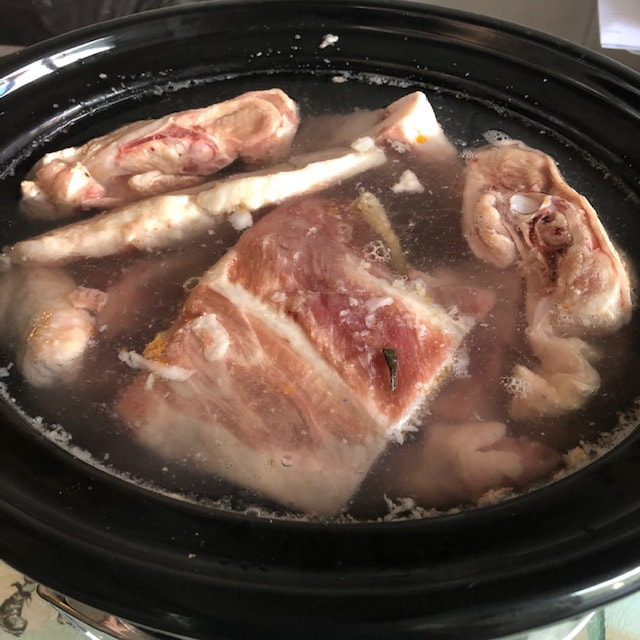
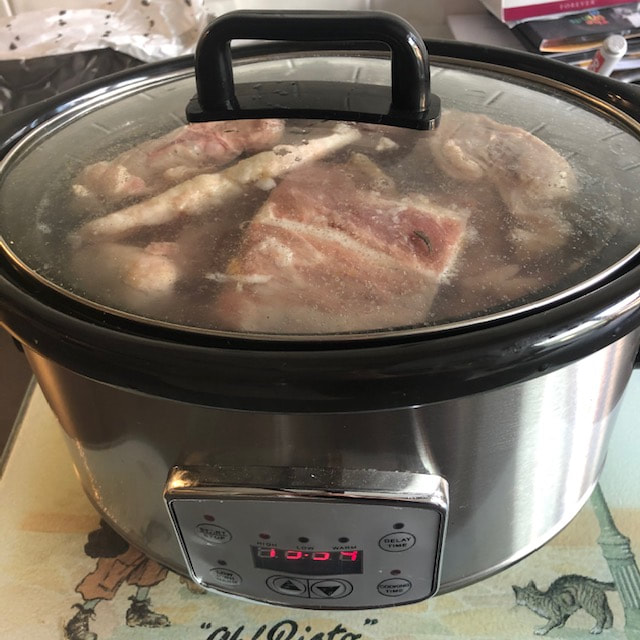
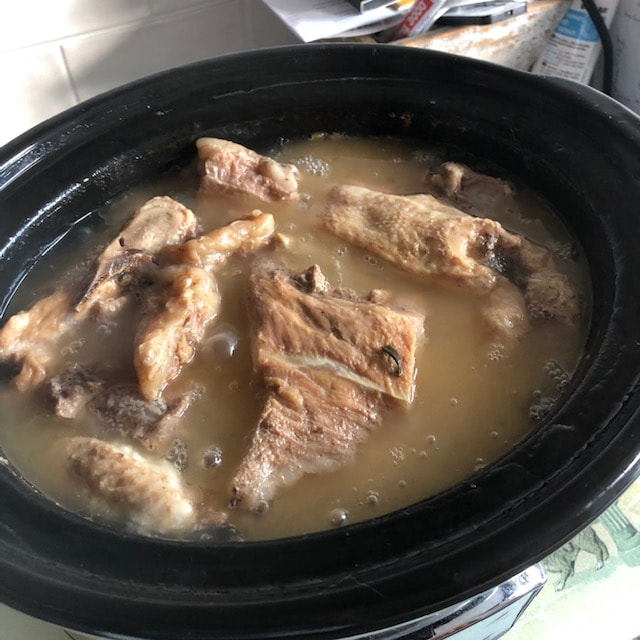
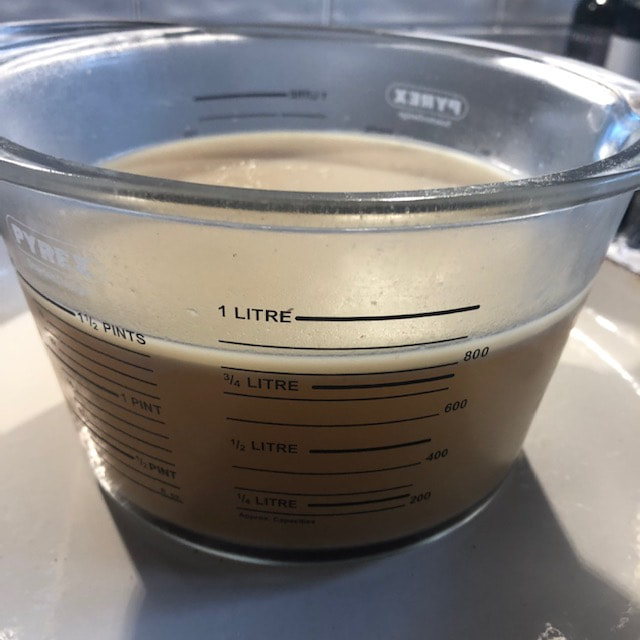
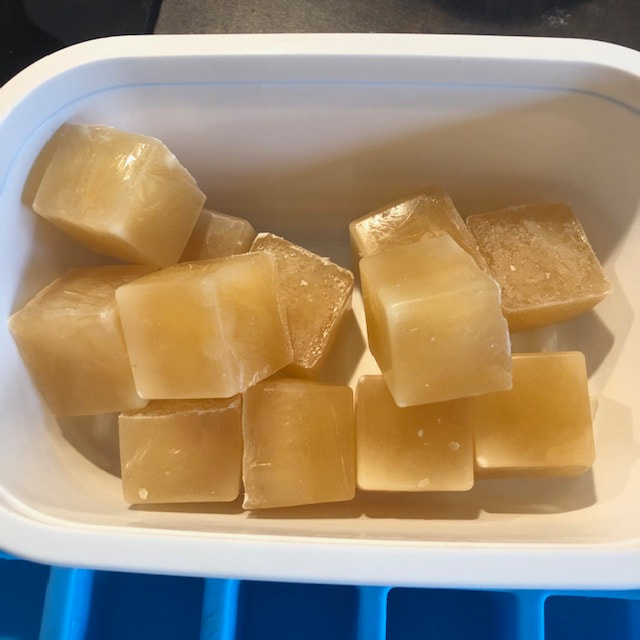
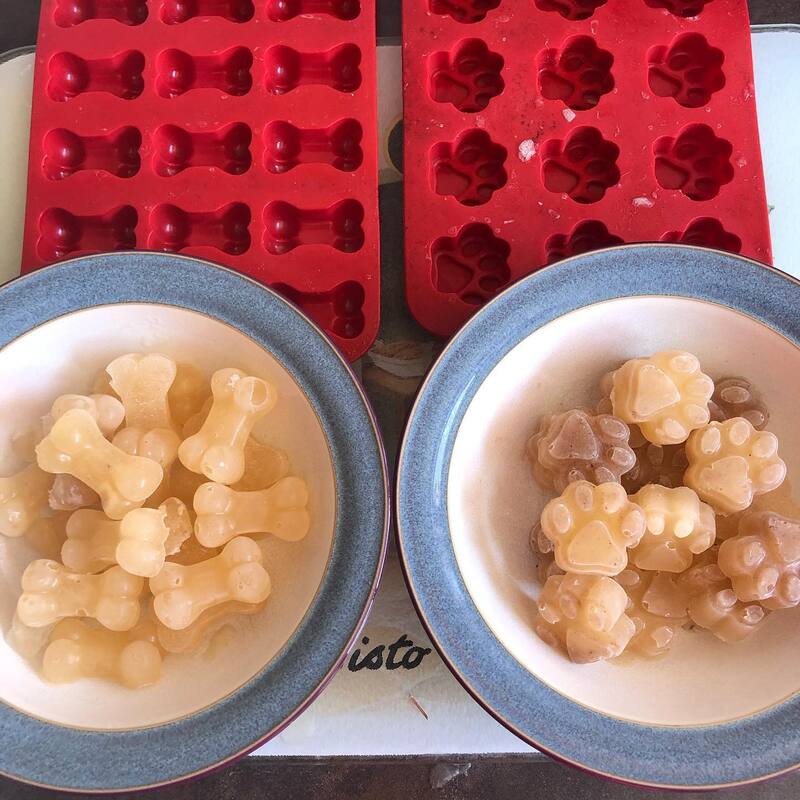
 RSS Feed
RSS Feed